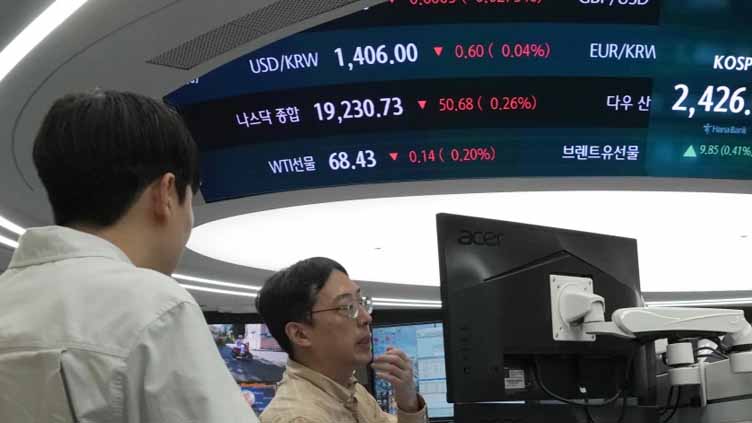
BUSINESS
Asian shares retreat after Wall Street’s mixed finish, as dollar surges

More in BUSINESS
-
Gold prices increase by Rs500 per tola
ISLAMABAD (WS News) – The price of 24 karat per tola gold witnessed an...
-
Bitcoin tops $100,000 with Trump-election crypto rally rolling on
NEW YORK (WS News) — Bitcoin topped $100,000 for the first time as a...
-
Wall Street parties like it’s 1998 as AI fuels gains unmatched since dot-com era
NEW YORK (WS News) — The S&P 500 is on track to close 2024...
-
Pakistan secures $3bn deposits rollover from Saudi Arabia
KARACHI (WS News) – The Saudi Fund for Development (SFD) on behalf of Saudi...
-
Saudi Arabia launches world’s first date-based soft drink
(WS News) – Saudi Arabia recently launched a rather unusual cola, crafted not from...
-
Bulls on the ladder as inflation eases amid hopes of rate cut
KARACHI (WS News) – The Pakistan Stock Exchange (PSX) continued its record run on...



